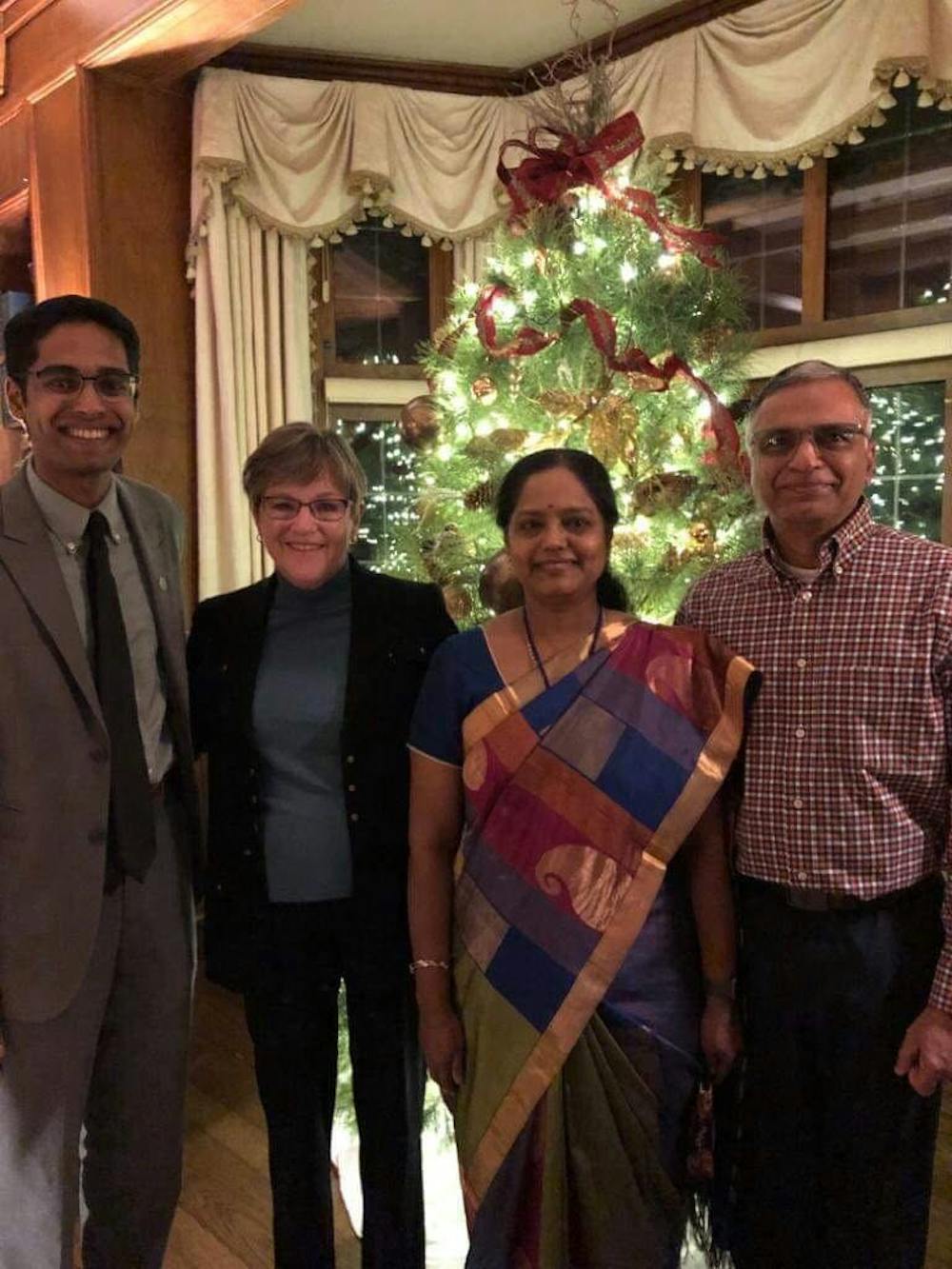Hopkins alum Vijay Ramasamy was awarded the Rhodes Scholarship on Nov. 21 and was one of 32 students to become part of the American Rhodes Scholar Class of 2020.
Rhodes Scholars have the opportunity to study at the University of Oxford in the U.K. for two or three years, with a monthly stipend to cover accommodation and living expenses. Ramasamy plans to pursue a Master of Science in Comparative Social Policy and a Master of Public Policy, beginning in fall 2021.
“I’m very cognizant of the privilege that goes into even being able to apply to something like this. It’s because of a village that something like this is possible. I’m very grateful and indebted to that village for even giving me the opportunity to apply,” Ramasamy said in an interview with The News-Letter.
Ramasamy’s motivation for applying to the scholarship was to further his understanding of the role of government, having gained a practical understanding from his jobs in the Baltimore City Health Department and the state health department in Kansas.
“I wanted a more theoretical understanding of how to build strong governments and how strong governments that exist now had been built and defended over time,” he said.
Ramasamy said that the U.K. was an example of a country with a strong welfare state, with its government-funded National Health Service providing free health care at the point of delivery.
After graduating from Hopkins with a BA in Public Health Studies in 2018, Ramasamy completed the Baltimore Corps Fellowship and worked for the Baltimore City Health Department as a special assistant.
“The health department in Baltimore is one of the most innovative and exciting health departments across the country,” he said. “They’re some of the best public servants in the world. They do so much with so little.”
Ramasamy explained that investing in prevention — increasing access to treatment for opioid addiction, mental health care, housing, food and other public health infrastructure — is incredibly important.
“Because of systemic racism and historical inequalities in our system — a lot caused by government — people don’t have access to those things, especially Black populations and other minority groups in Baltimore,“ he said. “That was the whole goal of the Baltimore City Health Department, to help alleviate those things.”
As a step toward reducing health-related disparities, Ramasamy led a team in creating the resource allocation website charmcare.org, which consolidates housing, food, substance use and mental health resources in Baltimore into one centralized, continuously updated database.
“The government [creating the website] is important because it’s much less likely to be fragmented,” he said. “It’s a public service to have all this information in one place.”
He emphasized the need to collaborate with hospital systems and community-based organizations to create the most comprehensive database possible. The website now displays COVID-19 resources for Baltimore City residents.
Ramasamy described his work in Baltimore as “a dream come true.” This role led to his current position as the policy and budget advisor for the governor of Kansas, where he has been involved in the state’s COVID-19 response.
COVID-19 has had a negative impact on small businesses by reducing customer demand, increasing unemployment and causing permanent closures. Millions of adults have had difficulty paying rent and 12% of adults in the U.S. reported their households did not have enough to eat within the past seven days, compared to 3.4% of adults during 2019.
“It is incumbent upon the government, it is incumbent upon us, all of us, to give people the resources they need to make healthy choices,“ Ramasamy said. “What I mean by that is if you’re telling folks to stay home and you’re telling businesses to close, you need to give those businesses resources so they can continue to pay their employees. You need to make sure that people have safe places to live. You need to make sure they have food.”
The pandemic has also disproportionately affected low-income households and racial minorities, especially Black Americans. Meanwhile, billionaires have experienced a collective surge in their wealth, Ramasamy stated.
“It really illustrated the kind of two Americas that we live in, right?” Ramasamy said.
However, Ramasamy remains optimistic about the government's potential to improve public welfare.
“Government is the best way we have to build a strong society,” he said. “Government has really failed historically, whether it’s in regard to Black populations, to other minority populations, to refugees, Latinx populations, it’s created a lot of harm. But it has the ability to do better. And they can only do better if we engage with it.”
Ramasamy elaborated that he wants to build on his experiences in Baltimore City and Kansas and advocate for government funding.
“We need to stop this myth that we need to have a smaller government, or that we need to cut all these taxes... because it really hurts people. The fundamental truth is that we all benefit from public services,” he said. “That’s what I really learned here. I want to take that to Oxford and build on that.”
Ramasamy expressed his gratitude for receiving the Rhodes Scholarship and acknowledged that there were many deserving applicants who would have benefited from it.
“It’s my job to earn it,” he said. “That’s the one thing on my mind — how do I earn it and make the most of it?”
Trisha Parayil contributed reporting.





